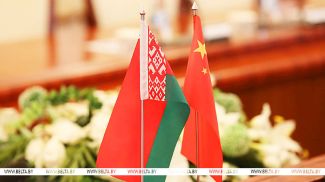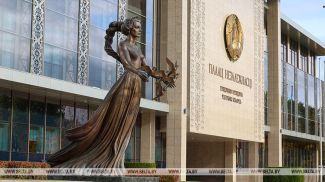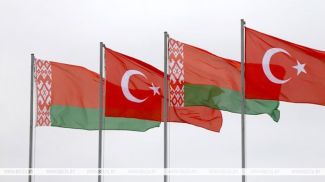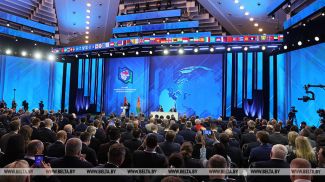MINSK, 30 May (BelTA) – The government should give local authorities a heavy workload and strictly monitor the progress made, Belarusian President Aleksandr Lukashenko said at the meeting to discuss the bill on the improvement of Belarus' socio-economic policy, BelTA has learned.
“It is time to start giving a heavy workload to the power vertical and hold officials accountable for what they do, especially heads of district executive committees. The local power vertical should stop kicking the can down the road waiting for instructions from the center. All instructions have already been given,” the president said.
Aleksandr Lukashenko emphasized that unless workforce is retained in the regions through creation of manufacturing facilities and redistribution of resources, all the efforts to improve the economic situation in the country might fail. “Stop the outflow of specialists to regional capitals and the capital city. This can be done through the provision of accommodation, the mandatory first job placement of university graduates, perks and benefits, and so on, this is your area of responsibility,” the head of state said.
He recalled that absolutely mundane and clear tasks were set for the local authorities: one or two new investment projects for the five-year period in each district, two worst-performing agricultural enterprises taken under personal control of heads of district executive committees, resumption of agricultural services provision in the countryside and revival of mobile mechanized brigades, doubling the pace of melioration, handling the issue of vacant houses and idle land.
“What powers do you lack to solve these problems? If you don't have enough powers, go ahead and put forward your proposals. There is no need to compromise on the socio-economic policy. The governors, plenipotentiaries and aides should help and control,” the president noted.
Aleksandr Lukashenko once again stressed that the general task of the government is to maintain peace, protect people and minimize the impact of the predatory sanctions on labor collectives.
“I am glad that people have the right understanding of the situation, support our peaceful development policy and, in the end, stay in their jobs. They understand what can happen,” the head of state added.













